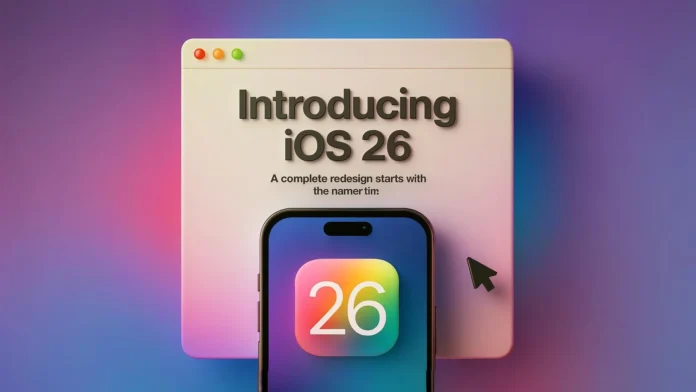What is iOS 26 translucent UI?
Officially presenting iOS 26 at WWDC 2025, Apple has introduced one of its most audacious interface changes in years – the translucent UI. This function makes system elements semi-transparent with a smooth glass-like gloss, therefore improving visual depth, readability, and interactability. Inspired by Vision Pro’s spatial interface and macOS’s “Frosted Glass,” this evolution gives iOS a futuristic, immersive experience.
Essential iOS 26 Translucent UI Features.
1. Frosted Glass Navigation Bars.
Apps’ navigation bars today have a hazy, see-through appearance that lets background material gently show through without compromising accessibility or clarity.
2. Dynamic Colour Adaptation.
Translucent parts dynamically change to fit wallpaper or app content for flawless sheming. It delivers on iOS a layered sense of depth not before possible.
3. Redesigned Notification Panels.
Especially in low-light settings, the softened blur with layered cards used in the notification shadow improves reading and lowers eye strain.
4. Control Centre Redesign
Improved animations and haptics produce a 3D stacking effect as control toggles float over a translucent background.
Device Compatibility
iOS 26’s translucent UI calls for devices with at least a A15 Bionic chip because of rendering needs. Supported models consist of:
- iPhone 14 and after
- Apple SE 4th Gen (2025)
- iPad Pro M2 (with iPadOS 18)
Older models will get a stationary UI free from translucency effects.
Effects on Performance and Battery
Apple has guaranteed flawless animations by optimising the translucent rendering engine with metal API enhancements. Nonetheless:
- Early betas saw a 5% increase in battery consumption.
- frame-rate control minimises thermal stress.
The depth animations really help ProMotion screens (120Hz).
Why Apple Made This Decision
Apple’s Human Interface team claims that this graphic make-over fits:
- Vision Pro’s spatial computing philosophy
- emphasises contextual layering more highly and drives.
- unified UI aesthetics across devices.
The action suggests Apple is future-proofing iOS for mixed-reality connectivity.
Read More: How to Capture Screenshot on PS4: A Step-by-Step Guide.
iOS 25 against iOS 26 UI: What differs?
| Features | iOS 25 | iOS 26 Translucent UI |
|---|---|---|
| Navigation Bars | Solid color | Translucent with blur |
| Notification Center | Flat cards | Layered glassy cards |
| Control Center | Opaque toggles | Floating translucent tiles |
| System Transitions | Standard blur | Layer-aware fluid motion |
Final Thoughts: Does this change games?
Totally. The translucent iOS 26 UI is not only beautiful but also a philosophical change. Apple is obviously blurbing the lines— Literally—between hardware, software, and space. This revamp gets customers ready for a more integrated Apple ecosystem by including elegance, accessibility, and futuristic depth.
FAQs
Q1: Can I turn off iOS 26’s transparent UI?
A: Indeed, under Accessibility > Display you can lower transparency to improve visibility.
Q2: Will outside applications follow this style?
A: A Apple expects quick acceptance when developers add translucency utilising UIKit/SwiftUI APIs.
Q2: Does this change dark mode?
A: It improves it; translucent layers fit quite well with darker subjects.

